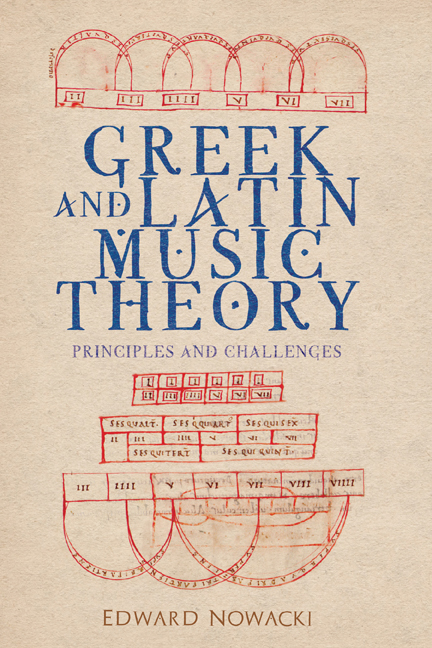Summary
The tonoi, as commonly understood, are the various transpositions of the ancient Greek two-octave scale, similar to modern keys. There were at various times five, six, seven, eight, thirteen, and fifteen of them. Andrew Barker has called the subject of their origins and original purpose one of the thorniest in Greek musical science. Thanks to the fragmentary, sometimes contradictory nature of the early testimony, we are obliged to rely to an uncomfortable degree on conjecture in our efforts to understand the origin of this theoretical concept. These difficulties, however, do not persist. In their later manifestations, the leading doctrines of the tonoi are supported with enough clear evidence to place their full comprehension within reach of practical study.
On the question of origins our consideration will necessarily be brief. The subject has challenged the wits of distinguished scholars, and readers who want a thorough treatment of it will need to consult their work. Next we will consider the doctrine as formulated by Cleonides and Claudius Ptolemy between the second and fourth centuries of the Common Era. These are the most permanent forms of the doctrine and have earned the right to be considered canonic. Following them, we will examine the treatments of the doctrine by the sixth-century writers Boethius and Cassiodorus, who are responsible for transmitting the Greek doctrines to the Latin West. Finally we will turn to writers of the Middle Ages, Isidore of Seville (early seventh century), Aurelian of Reome (mid-ninth century), and the anonymous principal expositor of the Alia musica (tenth century). By way of coda, we will take a brief look at the tonoi as a historical subject in writers of the modern era.
Aristoxenus
The main source of evidence on the question of origins is the Elementa harmonica of Aristoxenus, probably written in the last third of the fourth century B.C.E. The surviving fragment of the work transmits only part of Aristoxenus's complete teaching on the subject. Nevertheless, we may extract from it certain general principles. At the beginning of book 1, Aristoxenus writes that the two most important elements of the science of harmonics are systems (i.e., bounded scales) and tonoi (their “tensions”—that is, their highness or lowness in the pitch continuum).
- Type
- Chapter
- Information
- Greek and Latin Music TheoryPrinciples and Challenges, pp. 24 - 41Publisher: Boydell & BrewerPrint publication year: 2020

